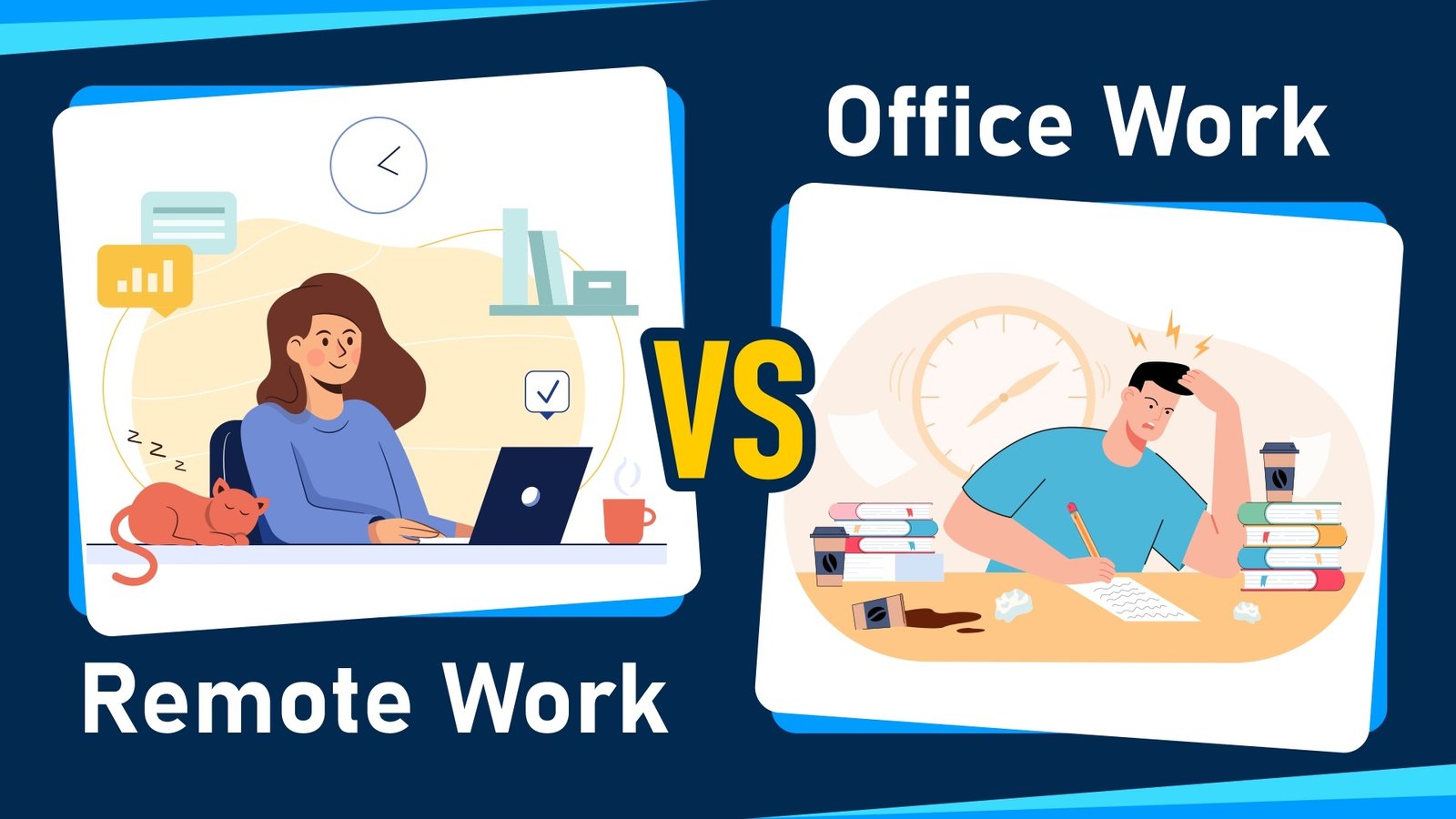Is Remote Work Culture Can Be Challenging For Growth In Career?
Some notions say being a remote people manager is problematic since, to manage people, one must be able to see them regularly.

Arvind Krishna, CEO of IBM, has warned the company’s 260,000 employees that remote work might harm their careers. Mr Krishna, whose hybrid-cloud computing company has profited from the surge of remote work, says he does not require anyone to come into the office just yet, but those who don’t will find it difficult to climb the ladder, particularly into management positions.

Being a remote people manager is problematic since, to manage people, one must be able to see them regularly.
It does not have to happen every minute. It is not required to operate under the old ‘Everybody’s under my watch’ standards all of the time, but it is sometimes necessary.
Krishna’s remarks add to the ongoing discussion about the advantages of working remotely versus in person. Some CEOs contend that employees, particularly younger staff, need to be on-site more frequently for learning and mentoring opportunities, while other experts cite studies showing that employees are happier and even more productive when given the option to work from home. However, economists’ data on work-from-home employment trends show that office-based employees invest 25% more time in career-development activities than their remote counterparts.
According to Krishna, who explained the company’s return-to-office policy, they urge customers to come in, expect the staff to go in, and want the team to come in. It appears that they work better when they are together in person. They recommend no more than three days each week, he added.
According to statistics from a group of economists who have followed the subject since the pandemic started, over half of US workers who can work from home have hybrid arrangements. Only 5% work entirely from home; most spend their days in the office. The findings also demonstrate that working from home is most popular in the technology and professional services industries where IBM is active.

However, some workers are concerned that working from home could affect their job security given the increase in layoffs and decline in job openings. Even though about 80% of IBM employees work remotely at least occasionally, Krishna claimed that remote work arrangements are most suitable for specific “individual contributors” positions like customer service or software development.
He noted that while one can be as productive in the short term, the career does suffer. The likelihood of their switching to another position is probably lower because no one monitors them in another setting. It will become more complicated. Not impossible, but indeed much more difficult.
People choose to work remotely, but it need not be a permanent choice — it might be a choice based on convenience or situation, according to Krishna, who took over as CEO immediately after the pandemic struck in April 2020. He claimed remote workers are not taught how to handle challenging clients or make trade-offs while building new products. He responded that he didn’t know how to do all that remotely.
The CEO of IBM has sought to refocus the 100-year-old business on more lucrative services like hybrid cloud computing, which enables clients to run their own data centres alongside public cloud service providers like Amazon.com Inc. and Microsoft Corp. Earlier this year, the corporation announced job cuts that, when finished, may affect 5,000 employees. However, Krishna claimed that despite this, IBM increased its entire staff by around 7,000 individuals in the first quarter.
Conclusion.
Some critics contend that one should abandon the attitude of a factory worker and learn to accept contemporary working patterns. Despite claiming to run significant tech companies, they appear to be out of their depth in today’s technologically advanced world. Hybrid work culture is the way of the future, and the businesses with the most flexibility will succeed.

Some people also compared this idea to the idea that promotions are made based more on relationships than on merits. The CEOs failed if the pandemic hadn’t educated the directors and management on how to govern remotely. Do they mean that online mentorship for staff cannot be done digitally? IBM does not require its employees to be present in the workplace in order to be productive, unlike a hospital.
People no longer compete for the top spot in an organisation like in the days of the gladiators in history. Now is a time when family and personal relationships are valued more. Employment is a two-way street. Although the company don’t own the staff, they need them.




